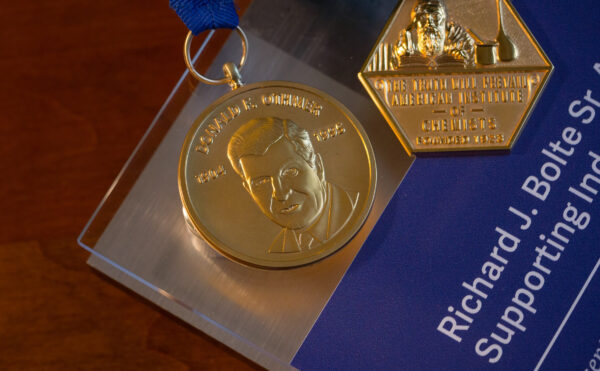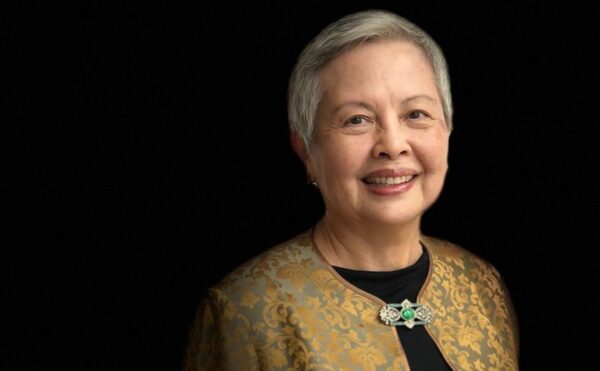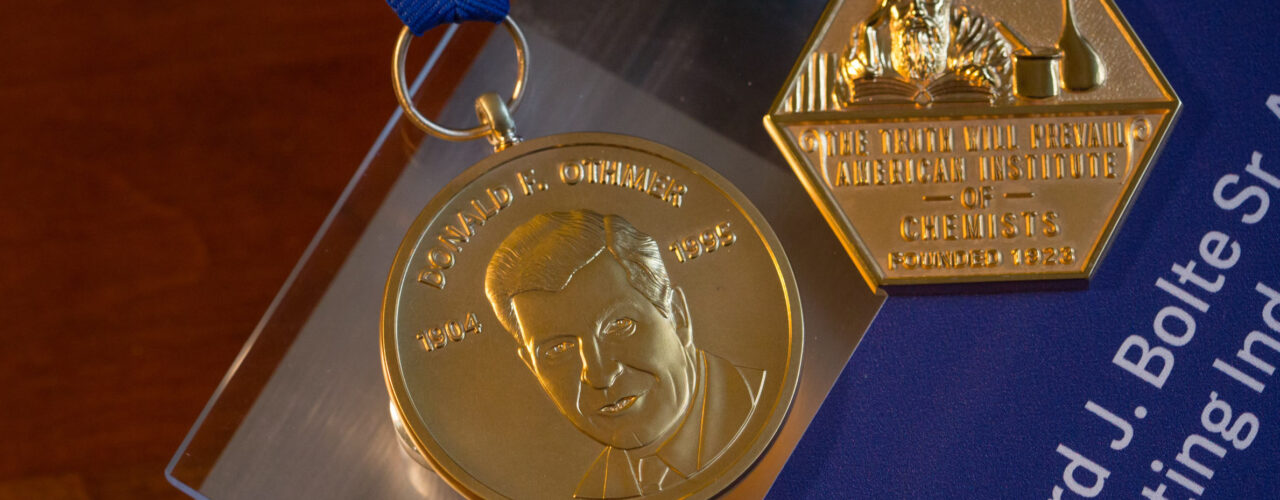
MIT Professor Paula Hammond, TIAX Founder Kenan Sahin, and Scripps CEO Peter Schultz to Receive 2024 Science History Institute Awards
Othmer Gold Medal, Bolte Award, and AIC Gold Medal will be presented on May 8 in Philadelphia.
We are pleased to announce the winners of the 2024 Science History Institute Awards, given in recognition of exceptional achievements in chemistry, chemical engineering, the life sciences, and allied fields and industries. An awards ceremony will be held on May 8 at the Institute in Old City Philadelphia.
Nanotechnology pioneer and MIT professor Paula Hammond will receive the Othmer Gold Medal, the Institute’s preeminent award. Named after Donald Othmer, a noted chemical engineer and inventor, this prestigious medal honors individuals who have made extraordinary contributions to the material sciences.
The Richard J. Bolte Sr. Award for Supporting Industries will be presented to Kenan Sahin, founder, president, and CTO of TIAX and CEO of CAMX Power. The Bolte Award honors those who provide products or services vital to the continuing growth and development of the chemical and molecular sciences community.
Scripps Research president and CEO Peter Schultz will be awarded the American Institute of Chemists (AIC) Gold Medal, which recognizes extraordinary accomplishments in chemistry or chemical engineering in the United States.
“It is truly an honor to add these three remarkable individuals to our storied list of award winners,” said Institute president and CEO David Cole. “Their groundbreaking innovations have positively impacted people’s lives, from the development of lifesaving cancer treatments and the advancement of military flight suits, to the management of drug discovery efforts for infectious diseases and regenerative medicine.”
About Paula Hammond

Paula T. Hammond is Vice Provost for Faculty and Institute Professor at MIT. She is also a member of MIT’s Koch Institute for Integrative Cancer Research. She is known for her work in nanomedicine, particularly with innovations around drug delivery to combat cancer, and with nanomedicine technologies for bone regeneration and wound healing. In recent years, her work has encompassed nanomaterials systems to treat osteoarthritis as well as staged release systems for the delivery of vaccines.
Hammond was elected to the National Academy of Science in 2019, the National Academy of Engineering in 2017, the National Academy of Medicine in 2016, and the 2013 Class of the American Academy of Arts and Sciences. She is also the 2019 recipient of the American Institute of Chemical Engineers Margaret H. Rousseau Pioneer Award for Lifetime Achievement by a Woman Chemical Engineer and gave the Materials Research Society David Turnbull Lectureship in 2019.
Hammond has published more than 330 papers and over 20 patent applications. She is the cofounder and a member of the Scientific Advisory Board of LayerBio, Inc., a member of the Scientific Advisory Board of Moderna Therapeutics, and a member of the Board of Alector, Inc. In 2021 Hammond was selected to become a member of the President’s Council of Advisors on Science and Technology.
The Detroit native received her BS in chemical engineering from MIT and worked for two years in industry. She moved to Atlanta to get an MS in chemical engineering at Georgia Tech, then returned to MIT for her PhD. She held the Ford Foundation Dissertation Fellowship and was an NSF Postdoctoral Fellow at the Harvard University Chemistry Department before returning to MIT as a faculty member.
About Kenan Sahin
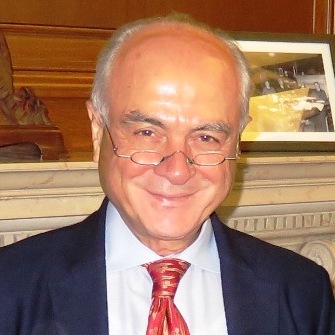
Kenan E. Sahin is the founder, president, and CTO of TIAX and CEO of CAMX Power. He is an academic, scientist, inventor, technologist, entrepreneur, and philanthropist.
In 2002 Sahin founded TIAX, which purchased the lab-based Technology and Innovation (T&I) unit of the fabled Arthur D. Little company. He transformed the TIAX/T&I combination into mature select early-stage technologies in energy to be IP-protected, de-risked, and production-ready for its industry partners to make and sell. In 2014 he spun out certain electromechanical and electrochemistry technologies into a separate company, CAMX.
TIAX products are widely used by the United States Air Force and Navy. Globally patented CAMX cathode chemistry inventions—licensed by Samsung, LG Energy Solution, Umicore, BASF, and others for use in lithium-ion EV batteries—minimize cobalt, increase performance, and reduce costs.
Sahin has been named a World Economic Forum Technology Pioneer. Other honors include the New England Business and Technology Circle of Excellence Award, the Golden Door Award by the International Institute of Boston, and the Ellis Island Medal of Honor. He has served on the boards of MIT, Argonne National Laboratory, the Boston Symphony, the Museum of Fine Arts, the American Field Service, and others.
About Peter Schultz
Peter Schultz is a professor of chemistry, chief executive officer, and the Sam Skaggs Presidential Chair at Scripps Research. Schultz has made many seminal contributions to the fields of chemical and synthetic biology, including the development and application of methods to expand the genetic code of living organisms, the discovery of catalytic antibodies, and the development and application of molecular diversity technologies to address problems in chemistry, materials science, and medicine, including the first application of combinatorial libraries to catalyst/materials discovery. He has lead drug discovery efforts that have advanced over 20 programs into clinical development and/or to approval, from infectious disease to cancer and regenerative medicine.
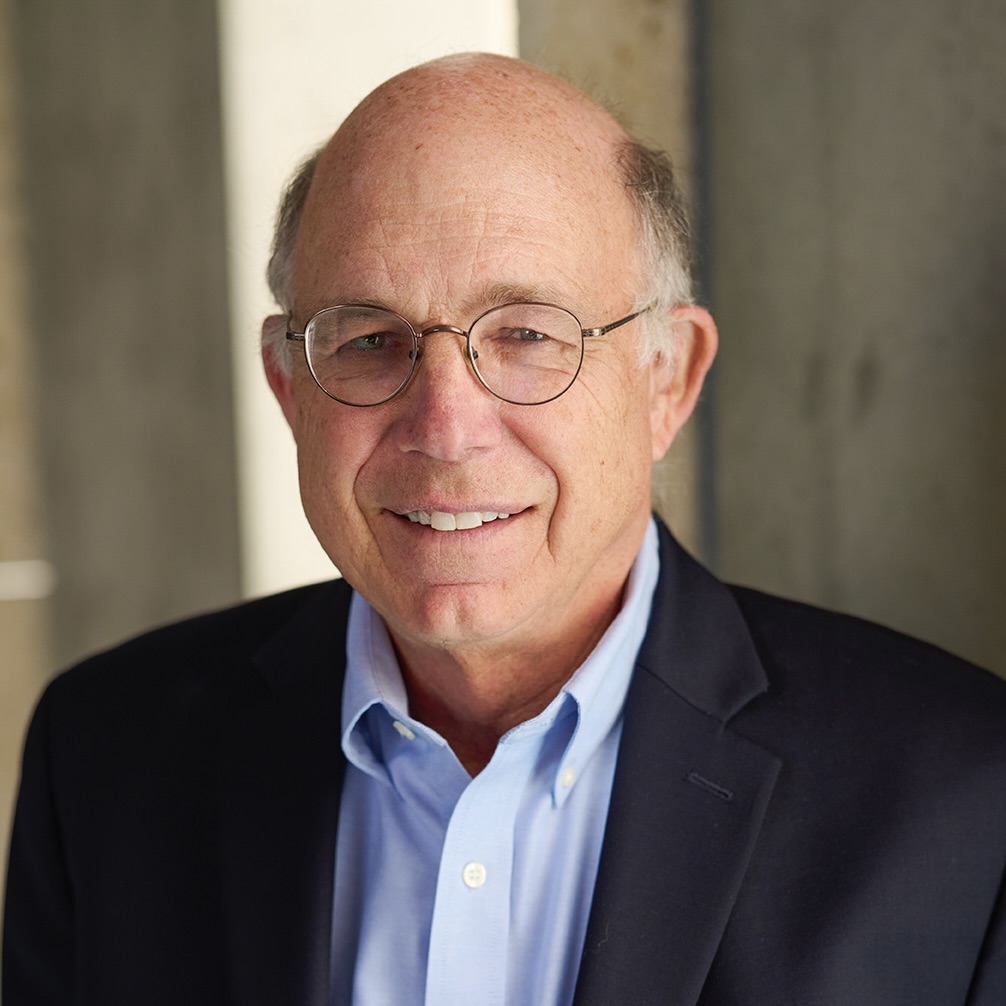
Schultz earned his undergraduate and doctoral degrees at the California Institute of Technology. After postdoctoral studies at the Massachusetts Institute of Technology, he joined the faculty at the University of California, Berkeley in 1985, where he was a chemistry professor, a principal investigator at the Lawrence Berkeley National Laboratory, and a Howard Hughes Medical Institute investigator. He joined Scripps Research in 1999 and was appointed chief executive officer in 2015.
Schultz has founded nine biotech/tech companies that have pioneered the development and application of new technologies to challenges in human health and materials science. In 1999 he founded the Genomics Institute of the Novartis Research Foundation, serving as its director for more than 10 years. There he led the development and application of automated high throughput methods in drug discovery, genomics, and structural biology.
In 2012 he established Calibr, a nonprofit biomedical research institute designed as a new model to accelerate the discovery of innovative medicines, and which is now an operating division of Scripps Research. As CEO of Scripps, Schultz is pioneering a new model for the company that seamlessly bridges basic and translational research and creates a new model for funding nonprofit biomedical research.
The coauthor of more than 600 scientific publications, Schultz is active on many editorial and scientific advisory boards. He is an elected member of the National Academy of Sciences and the Institute of Medicine of the National Academy of Sciences. Additionally, he has trained over 300 graduate students and postdoctoral fellows, many of whom are on the faculties of major research institutions around the world.
In recognition of his accomplishments, Schultz has received numerous prestigious awards, including the Wolf Prize in Chemistry, the Alan T. Waterman Award of the National Science Foundation, the Solvay Prize, the Paul Ehrlich and Ludwig Darmstaedter Prize, the Arthur C. Cope Award of the American Chemical Society, the Heinrich Wieland Prize, and the NAS Award in Chemical Sciences.

Major funding for Curious Histories Fest is provided by chief presenting sponsor the Bolte Family Foundation.
Additional support provided by sustaining sponsors American Chemical Society, Dow, and Arkema Inc.; and contributing sponsor Dr. Zhen Yang, YM American Academy.
More News
Winners of 2025 Science History Institute Awards Announced
Othmer Gold Medal, Bolte Award, and AIC Gold Medal to be presented on May 7 in Philadelphia.
Science History Institute Mourns Death of Board Committee Member Rose Chen
The multiculturalism advocate passed away on January 9, 2025, at the age of 75.
‘Distillations’ Article on Arsenic Featured on Top 40 Favorite History Writing List
Bunk, the University of Richmond’s online history project, names Jayson Porter’s recent piece a best-of 2024.

